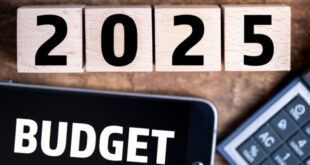Upland voters will decide Nov. 5 whether to approve Measure N, a one-cent sales tax that would generate revenue to pay for improvements to the city’s infrastructure and public safety.
If approved by a majority of voters, the “City of Upland Infrastructure, Public Safety and City Services Measure” would generate approximately $20 million a year for various projects, according to a city forecast.
That revenue will be spent on maintaining and upgrading streets, sidewalks and other public infrastructure. It would also help provide adequate 911 responses, reduce homelessness and improve public safety.
By law, revenue generated by Measure N – or any similar municipal ballot initiative – may not be taken by the state or county, and it must be spent in Upland. Measure N also has several exclusions: it won’t be applied to things like groceries, medical care, prescription drugs or utilities.
Additionally, Measure N won’t apply to purchases made with CalFresh, the state’s version of the U.S. Supplemental Nutrition Assistance Program, often called SNAP. It provides financial help to low-income families so they can buy food.
Measure N, which would remain law until eliminated by voters, mandates citizen oversight, full audits and requires that every dollar spent by the city be used for the benefit of the community.
“The city council continues to reinvest in Upland, by paving streets, repairing potholes, and ensuring our police officers are able to respond to 911 emergencies quickly.” Mayor Bill Velto said in a statement. “We are committed to improving the quality of life in Upland, and know that residents and businesses support maintaining city services.”
Amy Valdivia, board chair of the Upland Chamber of Commerce, said she supports Measure N because it’s the only way the city can raise the money it needs to fix its street and roads.
“They’re in very bad shape, and it’s very important for businesses to have good streets and roads,” said Valdivia, and Upland resident for more than 20 years and a chamber member since 2017. “It’s also a public safety issue. Infrastructure is about public safety, and Upland’s infrastructure has to be fixed.”
Anyone who drives through Upland will see see the city’s streets and roads are in serious need of repair, said Linda Trawnik, president of Historic Downtown Upland.
“I’ve lost six tires and I’ve had to have my car realigned,” said Trawnik, an Upland resident since 1986. “That’s how bad the roads are, and they’ve gotten worse in the last two years with all of the heavy rains we’ve had.
“The city didn’t have the money to fix them, so they got worse.”
Most Inland cities have higher sales tax rates than Upland, so no business owner in the city should be too concerned about a one-cent increase, said Trawnik, who has owned Steel Details Inc. a commercial and industrial design firm in downtown Upland, for 19 years.
The $20 million Measure N will raise is not as much as a lot of Inland cities have budgeted for road and sidewalk repairs, but it’s enough get Upland caught up on most of its needed upgrades, according to Trawnik.
“It’s a five-year project,” Trawnik said. “We don’t expect them to fix all of the problems at once.”
Two years ago, Upland voters rejected Measure L, a ballot measure virtually identical to Measure N, but Trawnik does not see history repeating itself.
“There’s a lot of opposition to Measure N, just like there was two years ago with Measure L,” Trawnik said. “There are more potholes, and I think people are getting tired of that. I think Measure N has a much better chance of passing the Measure L did.”
Measure N does have critics, and it’s approval is probably not a sure thing.
On Aug. 22, two weeks after the city council voted to put Measure N on the ballot, two written statements arguing against the proposed tax increase were filed with the city clerk’s office.
One statement noted that, during the past 24 years, Upland has sustained several budget shortfalls and budget cuts. Among other things, that forced the city to shut down its fire department and contract with San Bernardino County for those services, a move that has “worked out well,” for the city, according to the statement.
Still, this is not the right time to impose a sales tax increase, even one that is only one cent, the statement claims.
“Residents struggle to make ends meet (and) to pay their bills, yet a tone-deaf city council approved the sales tax increase ballot initiative,” the statement reads. “(But) the city has remained solvent, and it will continue to do so, without new taxes.”
Measure N has little to do with repairing Upland’s infrastructure, and more to do with paying “exorbitant” salaries, benefits and pensions to a handful of top city employees, the second statement charges.
As of 2022, the city was paying $450,839 to its chief of of police, $393,057 to its city manager, $344,289 to its assistant city manager and $368,944 to its police captains, according to that statement.
“The city council recently doubled their pay and gave themselves health insurance and retirement plans,” the second statement reads. “Now it wants hard-working families and seniors on fixed incomes to pay for all of this.”
The authors of those statements, Glenn Boozer, former council member, and Lois Sicking, a 35-year Upland resident, could not be reached for comment. Both signed a document filed with the city clerk’s office confirming they wrote the statements, but the statements themselves were not signed.
Critics of Measure N make some valid points, but they underestimate how tired Upland residents are of seeing services cut, according to Stephen Parker, assistant city manager for Upland.
“I believe they’re sticking their heads in the sand,” Parker saiid “They want us to keep our sales tax where it is and cut services, but over the years we’ve cut services about as much as we can. I don’t know what else we could but, and I don’t think people want us to get rid of anything else.”
Because Upland badly needs infrastructure and public safety improvements, and because those improvements will only get more expensive with time, the city desperately needs to pass Measure N, Parker said.
“We won’t have to fire people if it doesn’t pass, but our infrastructure has not been serviced properly for a long time,” Parker said. “Seven years ago we had to outsource our fire department (the city still has its own police department). We might have to find other things to outsource if Measure N isn’t approved.”
 IE Business Daily Business news for the Inland Empire.
IE Business Daily Business news for the Inland Empire.


